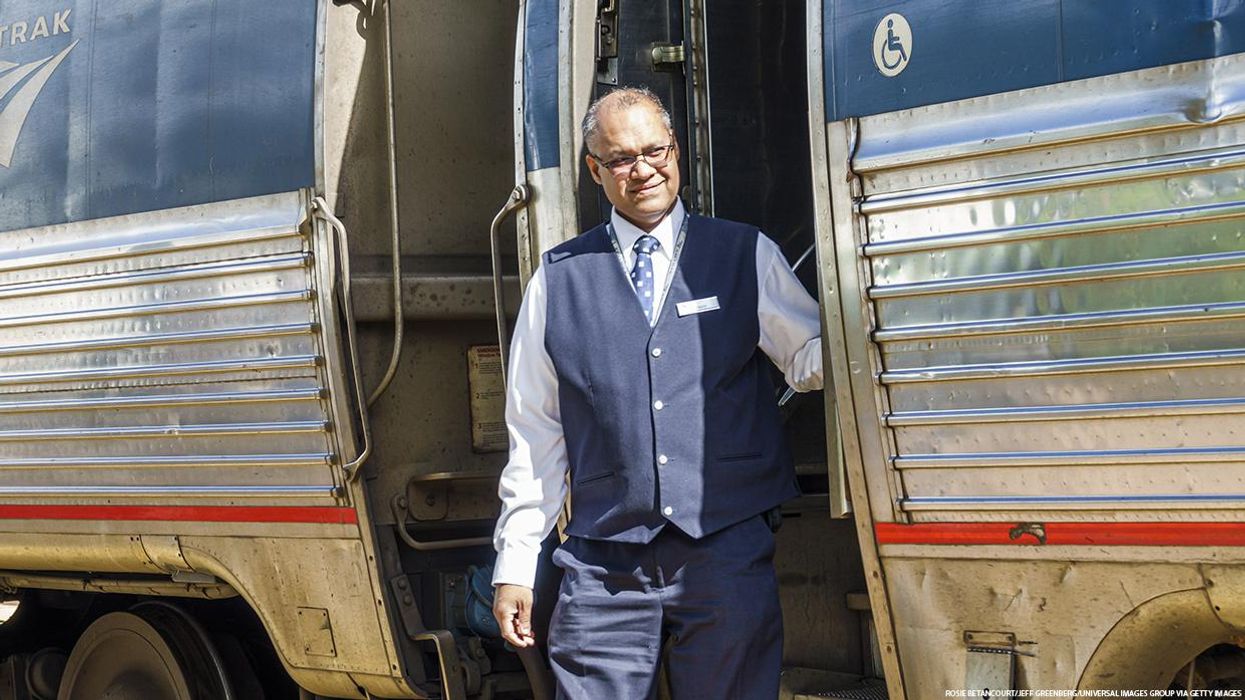President Joe Biden announced Thursday morning that his administration has reached an agreement with transportation workers to avoid a national rail strike.
According to a statement released by Biden, the proposed changes will provide the workers with “better pay, improved working conditions, and peace of mind around their health care costs."
Freight rail union members involved in the negotiation confirmed a consensus that "balances the needs of workers, businesses, and our nation’s economy” has been reached, though the President's deal must still be ratified by transportation unions via vote. While the voting process can span weeks, workers have agreed not to strike until the results are certified.
The negotiators had until 12:01 a.m. Friday to reach a satisfactory agreement and avoid a national rail strike, which could have impacted tens of thousands of jobs across the country. Rail activity from commuter travel to freight shipment would have been severely affected, dealing an undeniable blow to the economy.
In preparation for the Friday deadline, unions organized picket lines in several major cities from Stockton to Baltimore. Massive layoffs inside and outside of the industry were impending as Amtrak said in the event of a strike, they would cease all long distance travel, including most freight operations. In a period of already high inflation, the cost of material goods was in danger of further increasing.
While the White House was not initially involved in negotiations, rail executives and union leaders escalated their debate to the Labor Department where they met with the President 9:00 p.m. Wednesday. Officials were eager to curtail the situation, as the economic and political consequences of a strike this size could have been enormous for Democratic candidates in the November midterm elections.
Jared Cassity, a conductor and director of SMART Transportation Division, one of the unions involved in negotiations, said that the impending strike was not about payment, but the fair treatment of workers. He explained: “This round of bargaining is not about [wages.] It’s about absentee policies and the ability of folks to receive preventive care without retribution. People are getting fired for going to the doctor, even with documentation from doctors.”
Rail workers have consistently demanded the ability to take leave for medical emergencies, as employees are often penalized or even fired for missing work regardless of circumstance, an inside source unauthorized to speak on the meeting confirmed to the Washington Post. Thursday marks the first instance where the three largest railways -- BNSF, Union Pacific, and CSX -- bargained with employees over attendance policies.
The anonymous individual reportsthat Biden encouraged both owners and workers to take the "tentative" deal, but "became personally animated" when the worker's lack of leave came into discussion. The President continuously emphasized that he "did not understand why workers could not be granted more flexible schedules."
After 20 consecutive hours of negotiation, the two largest railroad unions and rail companies reached an agreement that allows workers voluntary assigned days off, as well as a 24 percent wage increases by 2024 and an immediate 13.5 percent raise. Workers will also receive $1,000 annual bonuses over the next five years, alongside changes to how out-of-pocket healthcare costs will be calculated.
“The Biden administration applauds all parties for reaching this hard-fought, mutually beneficial deal,” a Labor Department official said. “Our rail system is integral to our supply chain, and a disruption would have had catastrophic impacts on industries, travelers and families across the country.”



















































